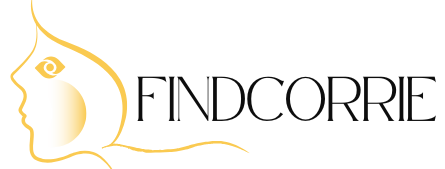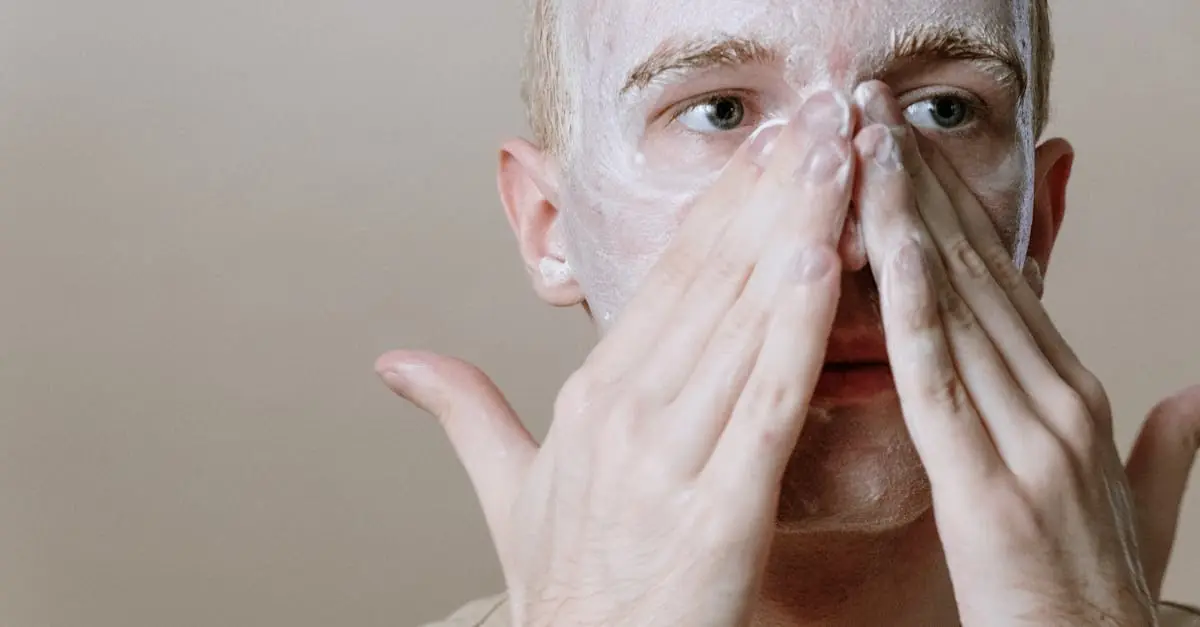Hormonal acne can feel like an unwelcome guest that just won’t leave the party. It shows up uninvited, often at the most inconvenient times, and wreaks havoc on your skin. But fear not! With the right skincare routine, you can send that pesky acne packing and reclaim your glow.
Table of Contents
ToggleUnderstanding Hormonal Acne
Hormonal acne arises from hormonal fluctuations and often appears during puberty, menstruation, or other hormonal changes. Recognizing its causes and symptoms enables better management of this skin condition.
What Causes Hormonal Acne?
Hormonal fluctuations frequently lead to an increase in oil production in the skin. This surge in oil can clog pores, resulting in acne formation. Androgens, a group of hormones that includes testosterone, are commonly linked to hormonal acne. Increased levels of these hormones can elevate sebum production, exacerbating acne. Stress can contribute to hormonal imbalances, further aggravating skin issues. Additionally, certain medications can disrupt normal hormone levels, leading to breakouts in some individuals.
Common Symptoms of Hormonal Acne
Hormonal acne typically manifests in specific areas of the face, such as the chin, jawline, and forehead. This type of acne presents as cystic lesions, characterized by their deep, painful nature. Flare-ups often occur around menstrual cycles or during times of heightened stress. Nodules and pus-filled papules may also appear, making prompt identification essential. These symptoms can differ from traditional acne, making it important to recognize the hormonal link when addressing skincare routines.
Key Ingredients in Skincare
Effective management of hormonal acne relies on specific skincare ingredients. Understanding how these components work can enhance the skincare routine.
Salicylic Acid
Salicylic acid acts as a powerful exfoliant. It penetrates pores and helps reduce oil accumulation. Regular use can lead to clearer skin by dissolving dead skin cells. Concentrations of 0.5% to 2% are effective for most individuals. Many over-the-counter products contain this ingredient in cleansers or spot treatments.
Benzoyl Peroxide
Benzoyl peroxide targets bacteria that contribute to acne development. It reduces inflammation and unclogs pores, making it ideal for treating hormonal acne. Products usually feature concentrations ranging from 2.5% to 10%. Selecting a lower concentration minimizes irritation while remaining effective. Incorporating this ingredient into a routine often leads to noticeable improvements.
Retinoids
Retinoids offer significant benefits for those dealing with hormonal acne. They encourage skin cell turnover, which prevents clogged pores. Prescription options like tretinoin provide stronger effects than over-the-counter variants. Initial irritation may occur, so gradual introduction is advisable. Long-term use enhances overall skin texture and tone.
Natural Remedies
Natural remedies provide gentle alternatives for managing hormonal acne. Tea tree oil stands out due to its antibacterial properties. Witch hazel can also help reduce inflammation and soothe skin. Aloe vera offers hydrating benefits while calming irritation. Essential oils should be diluted before application to avoid skin reactions. Exploring these natural options can complement other treatments effectively.
Building Your Hormonal Acne Skincare Routine
Creating a tailored skincare regimen helps manage hormonal acne effectively. A consistent routine addresses skin concerns and enhances overall skin health.
Morning Routine Steps
Cleansing starts the morning on a fresh note. Use a gentle cleanser with salicylic acid to remove excess oil and impurities. Next, apply a lightweight, non-comedogenic moisturizer to hydrate without clogging pores. Incorporating a broad-spectrum sunscreen with SPF 30 or higher protects against sun damage and prevents further irritation. Consider using a serum that contains niacinamide, which helps regulate oil production and reduce redness. Keeping this routine consistent maximizes the effectiveness of the products and promotes clearer skin.
Evening Routine Steps
Cleansing in the evening is crucial to remove makeup and dirt from the day. Opt for a balm or oil cleanser that thoroughly breaks down products. Follow with a prescription retinoid or a gentle over-the-counter retinol for effective skin renewal. Spot treatments containing benzoyl peroxide can target active breakouts and reduce inflammation. Wrap up with a calming moisturizer that contains ingredients like aloe vera or hyaluronic acid to soothe and hydrate skin overnight. Maintaining this routine addresses hormonal fluctuations and encourages skin recovery.
Additional Tips for Managing Hormonal Acne
Managing hormonal acne effectively involves addressing both dietary and lifestyle factors. Implementing a holistic approach can lead to significant improvements.
Dietary Considerations
Incorporating a balanced diet aids in managing hormonal acne. Foods rich in omega-3 fatty acids, such as salmon and walnuts, help reduce inflammation. Antioxidant-rich fruits and vegetables, like berries and spinach, contribute to overall skin health. Limiting dairy products may also be beneficial, as some studies indicate a link between dairy and acne flare-ups. High-glycemic foods should be consumed in moderation; these include white bread and sugary snacks that can trigger insulin spikes, worsening acne. Staying hydrated with water not only supports skin function but also aids in detoxification.
Lifestyle Changes
Implementing healthy lifestyle changes can enhance acne management. Regular physical activity promotes blood circulation, helping to clear toxins from the body and balance hormones. Stress management techniques like meditation and yoga can stabilize hormonal fluctuations contributing to acne. Prioritizing adequate sleep supports skin rejuvenation, allowing it to recover effectively. Avoiding harsh skincare products that irritate the skin plays a vital role; gentler options are more suitable for sensitive skin. Practicing good hygiene, such as changing pillowcases frequently and keeping hair clean, can further reduce the risk of breakouts.
Managing hormonal acne requires a multifaceted approach that combines effective skincare with lifestyle adjustments. By incorporating the right ingredients and establishing a consistent routine, individuals can significantly reduce breakouts and promote healthier skin.
Additionally, dietary choices and stress management play vital roles in balancing hormones and enhancing overall skin health. With patience and dedication to a personalized regimen, clearer skin is achievable. Embracing this holistic strategy empowers individuals to regain confidence and enjoy a radiant complexion.




